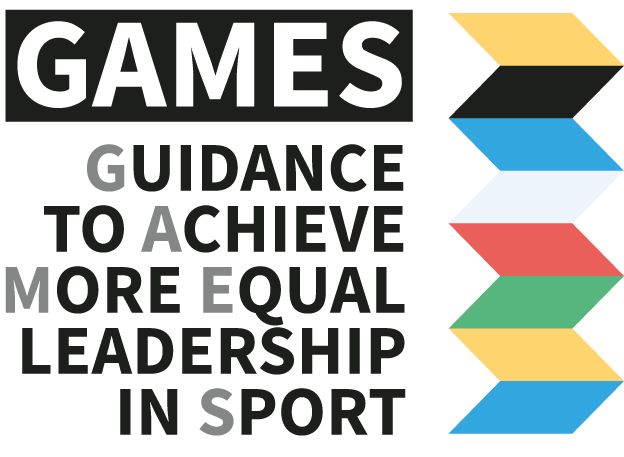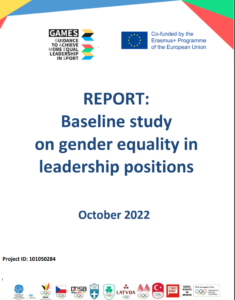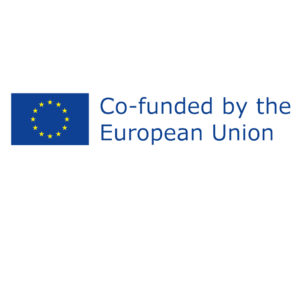The GAMES project is moving forward! In October, the fourth deliverable ’Report of Arts’ was successfully submitted on the European Commission’s platform.
The Report provided a multi-layered analysis of the baseline study/questionnaire designed to assess the current situation in terms of gender equality at the leadership level among partner National Olympic Committees (NOCs) and a set of major National Federations (NFs) representing both winter and summer sports, as well as individual and team sports.
Hence, the GAMES Report provides an analysis of women’s representation at the leadership level, some structural elements, and the current policies and procedures for gender equality among partner NOCs and NFs.
Main findings
Voting rights: Women accounted for no more than 1/3 of General Assembly voters. Overall, there is a correlation between sports that have historically been very male-dominated in terms of participation and visibility and larger male majorities in decision-making roles/lack of representation of women in decision-making positions.
Staffing: Many NFs and NOCs in the study have no more than a handful of employees. And yet, two consistent patterns were analyzed across all 8 countries:
1. NOCs had similar numbers of male and female staff but men were prevalent in senior management and executive roles.
2. NFs in all sports - except gymnastics - have more male than female employees and more men in senior management positions;
Gender equality policy/strategy: 25% of NOCs and 42% of NFs surveyed had a gender equality or diversity and inclusion policy/strategy, Notably, quite a number were currently seeking to develop one.
Gender initiatives. The most widely adopted initiatives to help women reach decision-making positions among both NOCs and NFs included networks, mentoring and education programmes, as well as workshops/seminars for women in decision-making positions. Among the other less widely implemented initiatives stand gender budgeting to consider the impact of budgeting decisions on gender equality, flexible remote and part-time working to support maternity and paternity situations, and terms limits to ensure regular turnover at decision-making levels.
Limitations
Overall, the questionnaire has gathered responses from 110 NFs with a productive response rate of 89%. Nevertheless, considerable caution is needed before attempting to extrapolate numbers and trends more widely. The participating NOCs are not a representative sample of European NOCs, nor are the 8 core sports involved in the Report representative of sports overall.
Next steps
The GAMES Report provided valuable insights for partners NOCs and their member federations to better comprehend their “stage of readiness” to promote structural changes in governance, enhancing the understanding of existing barriers to create sustainable change in terms of gender equality in leadership positions.
Hence, the GAMES Report is expected to inform the development of the Pool of Actions, as well as the NOCs’ National Action Plans to define concrete strategies to further progress gender equality in leadership positions in sport.
Background information:
The GAMES project is a 24 month project co-funded by the European Commission through the Erasmus+ Sport Programme 2021 and coordinated by the EOC EU Office. It promotes integrity and good governance in sports by advocating for structural and cultural changes regarding gender equality in leadership and decision-making positions among NOCs and their member federations.



